Political Perspectives is produced by the students and faculty of Carleton University's School of Journalism and Communication, Canada's oldest journalism school.
2nd
MAY 2009
Death of a tradition
Posted by padams under All, Political Strategy
Paul Adams
Paul Adams is blogging the federal Liberal convention in Vancouver this weekend.
This morning, Liberals adopted a new system of direct voting by party members to choose their leaders, marking the end at the federal level of a peculiarly Canadian institution that originated with the Liberal Party.
Leadership conventions have produced some of the most dramatic moments in the political history of the past half-century. John Diefenbaker defiantly refusing to drop off the ballot at the Progressive Conservative convention of 1967 even after the party had made it clear it no longer wanted him. Pierre Elliott Trudeau winning with 51% of the vote on the fourth ballot of the highly-polarized 1968 Liberal convention. Sinclair Stevens’ dramatic march across the convention floor to secure the unlikely nomination of Joe Clark as PC leader in 1976. And of course Stéphane Dion’s stunning victory over Bob Rae and Michael Ignatieff in 2006.
Until 1919, Canadian party leaders were chosen as they usually are in Westminster-style systems by the parliamentary caucus. When Sir Wilfrid Laurier died in 1919 in the run-up to a policy convention, the party executive decided to use the event to choose his successor, who turned out to be William Lyon Mackenzie King. Over the years, most other Canadian parties adopted a variation on the Liberal model.
Superficially, Canadian leadership conventions look a lot like the conventions the American parties use to choose their presidential candidates, but they are fundamentally different in several ways.
First of all, Canadian parties use a secret ballot. That means that once they are selected, by and large delegates to Canadian leadership conventions have been autonomous. In American conventions, delegates vote in public, meaning that they are at the least in theory accountable to those who chose them, and certain exposed to political pressures from party power-brokers. In many cases, they are bound by state law or state and national party regulations that require them to vote, especially in early balloting, in specific ways.
The most famous instance of the impact of the secret ballot was the so-called “Flora effect” in the 1976, when more delegates were said to have gone into the balloting stations pledged to Flora MacDonald and wearing her buttons, than she received actual votes.
Second, the American parties, especially in the last half century, have adopted increasingly open mechanisms to choose delegates. Most Americans over 18 can participate in choosing one of the major party party candidates through a primary or caucus if they choose, as tens of millions of people did last year.
In Canada, fewer than 5% of voting-age Canadians belong to any party, though in hotly contested races, the size of a party may often double, triple or more, as new members are recruited in order to get them to vote for the various candidates. This is, of course, one reason that defenders of the system have argued for keeping it.
Third, most Canadian parties adopt a multi-ballot system in which candidates who fare poorly on the initial round of delegate voting are forced to drop off, and the race is gradually culled, often to two remaining front-runners. In the United States candidates are not forced to drop off by the rules.
This system has sometimes produced paradoxical results. Arguably, John Crosbie might have beaten both Joe Clark and Brian Mulroney if he had not been forced off the ballot by the rules in the 1983 convention.
More to the point, it seems unlikely that Stéphane Dion would have won the 2006 convention, having come into the convention with the support of just 17% of delegates, had Bob Rae not been forced off the final ballot by the rules.
In recent years, most Canadian political parties have moved to more inclusive and less expensive processes — even if they lost the opportunity for the major television coverage conventions often bring.
Adam Radwanski on the Globe and Mail’s website has given an admirably clear explanation of why the Liberals needed to abandon the system of delegated conventions to choose their leaders.
Though the Liberals debated the change at their Vancouver biennial meeting this morning, the truth is that there was an air of inevitability to the abandonment of the process they invented 90 years ago.
Too costly. Too divisive.
But it was fun to watch while it lasted.
Paul Adams, a former political correspondent for the CBC and Globe and Mail, is a member of Carleton’s journalism faculty and executive director of EKOS Research Associates. He is researching a book on the Liberal Party.
2nd
Policy Substance
Posted by padams under All, Media Commentary, Political Strategy
Paul Adams
Further to Elly Alboim’s post yesterday in which he said that the Conservatives would try to feed into the media narrative that Michael Ignatieff has not said enough about policy, at the end of last night’s interminable farewell speech by Stéphane Dion, Stephen Harper’s communication aide, Dmitri Soudas, emailed reporters commenting that Dion had delivered more policy substance in his speech than Ignatieff had done in his four months as Liberal leader.
2nd
The long goodbye
Posted by padams under All, Media Commentary, Political Strategy
Paul Adams
Paul Adams is blogging the federal Liberal convention in Vancouver this weekend.
Last night’s tribute to Stéphane Dion began after 11:00 p.m. central time, presumably so that the majority of Canadians living east of Thunder Bay were unlikely even to stumble across it by accident.
A little earlier, Jean Chrétien had given a rollicking partisan speech, whose centre-piece was a riff on Stephen Harper’s absence from the “family photo” at the recent G-20 meeting, reportedly because he was in the bathroom.
This speech set a standard that nothing in the program to follow remotely matched.
There was the usual video tribute to the outgoing leader, followed by a speech by Paul Martin, more energetic than memorable. Michael Ignatieff also spoke briefly before Dion himself.
Dion’s speech was reminder to the roughly 2000 Liberals in the room, and the dwindling audience of those watching on CPAC, of why he is so widely regarded as a decent human being and a terrible politician. It was long (more than 30 minutes), earnest, hectoring, replete with a reference to Schopenauer, and utterly uncontaminated with applause lines.
After Dion finished, the Liberals for some reason had scheduled a further extensive program, including a speech by former Supreme Court Justice and UN High Commissioner for Human Rights Louise Arbour.
But Arbour spoke to a nearly empty room — or so we are left to presume, since most of the media had also long since filed their stories and left the building.
Paul Adams, a former political correspondent for the CBC and Globe and Mail, is a member of Carleton’s journalism faculty and executive director of EKOS Research Associates. He is researching a book on the Liberal Party.
1st
MAY 2009
The full pander
Posted by cwaddell under All, Political Strategy
Paul Adams
A self-declared Montreal Canadiens-Boston Red Sox fan.
1st
The pressure for policies
Posted by cwaddell under All, Media Commentary, Political Strategy
Elly Alboim
The world changes for Michael Ignatieff after his convention speech Saturday night. The low bridge strategy thus far has been successful thus far and has allowed him time and space to work on his organizational priorities. But it has also led inevitably to increasing media demand for news and substance. As that demand remains unrequited, it raises the threshold for successfully meeting it. Saturday night’s threshold is now pretty high.
So on to the debate about the right time to lay out core policy.
Political strategists will say, appropriately, that it is not yet time to unveil policy. In fact, it may well be that the ideal Liberal strategy is to force the ballot question to be a referendum on the Prime Minister. That implies anteing up only the minimal policy table stakes as late in the game as possible.
But in a world of a thoroughly disengaged electorate, media arrogates to itself (and is passively delegated) the role of setting the rules, establishing the pace and defining the champions. More often than not, as lots of academic and public opinion research has established, it frames the initial narrative for its readership about the substance, process and personalities of current politics.
Political media has little patience for the incrementalism of a slow, deliberate build because that does not meet most definitions of what is news. In its defense, media will say that a man who is now a prime minister in waiting has a responsibility to say what he will do when the wait is over. They may say that but what they really mean is that they sense a large change in the political dynamic and they want to get on with the next round of exciting leadership politics.. A Battle of Champions is the most desirable sort of political narrative these days. It is much more engaging than other political coverage and capable of competing with other more entertaining news.
You can see the narratives building.
People are saying and writing things questioning Prime Minister Stephen Harper – re his skill set, strategic sense, grip on the party, and shelf life — in ways they have not written before. All that is fostered by his weakening in the polls. They see a new potential narrative of a Fall From Grace on the basis of a Flawed Personality and an abandonment of ideological constancy which has Mr. Harper leading a Government About Nothing.
The Rise From the Liberal Ashes narrative is the frame surrounding Mr. Ignatieff , made more credible by his standing as Public Intellectual and the added mystery of his Enigmatic Personality.
That’s the ultimate narrative arc they want with each Champion acting out a classic dramatic role.
To get there, you need engagement and conflict. And disappointingly to political media, Mr. Ignatieff has not played the game. The brinkmanship is minimal, the policy cleavages virtually non-existent.
What comes next is inevitable and predictable – increasing and harsh media pressure on Mr. Ignatieff as the media consensus solidifies that he is not entitled to be a prime minister in waiting without defining himself and his policy set. As the weather forecasters say, there’s a 90% probability of rain.
He may hold out for a good while yet as the political strategists would have it. But there will be collateral damage – the media will have its say and much of what it says will be negative and will stick, at least initially. The Conservatives will pile on, doing their best to try to make it stick permanently.
Elly Alboim is an associate professor in the School of Journalism and Communications and a principal in the Earnscliffe Strategy Group, specializing in strategic communications and public opinion.
1st
Does Ignatieff really need policy now?
Posted by padams under All, Media Commentary, Political Strategy
Paul Adams
Paul Adams is blogging the federal Liberal convention in Vancouver this weekend.
A recovering Martinite recently remarked to me that Paul Martin’s regime had focused enormous energy on policy (“fixing” medicare, national child care, the Kelowna Accord, Darfur, etc., etc.), but neglected the political zones both above and below: that is, party organization and the expression of “aspirational goals” that could inspire Canadians and Liberal supporters.
Interestingly, Michael Ignatieff, has concentrated all his energies so far on party organization — really the theme of this weekend’s convention — and aspirational goals — the theme of his recent book. But he has spoken relatively little about policy. A media consensus seems to be emerging that Ignatieff needs to fill in the policy gap quickly.
On the Globe and Mail website one-time NDP strategist Les Campbell dissents from the consensus:
“Yes, there is media pressure to ‘flesh out specifics.’ And yes, party members love to think that they are influencing the party’s priorities. But seriously, no one thinks that Michael Ignatieff lacks ideas.”
“Canadians won’t have any problem believing that Mr. Ignatieff can come up with clever strategies and complicated policies. What they need to know is who he is, and how he might react under pressure and the weight of responsibility. As Mr. Ignatieff’s recent taxation ruminations showed, rolling out policy before fully defining the party leader opens the door for other parties to use policy — out of context — to define the leader in their way. There is lots of time for policy later.”
Paul Adams, a former political correspondent for the CBC and Globe and Mail, is a member of Carleton’s journalism faculty and executive director of EKOS Research Associates. He is researching a book on the Liberal Party.
30th
APR 2009
The lion still roars
Posted by padams under All, Political Strategy
Paul Adams
Paul Adams will be blogging the federal Liberal convention in Vancouver this week.
No Liberal leader since John Turner has been as interested in the mechanics of the Liberal Party as Michael Ignatieff. Both leaders were confronted with the challenge of rebuilding a badly beaten party, and followed predecessors who cared little and did less about invigorating the party.
As it happens, some of what Ignatieff is trying to do this weekend is undo, to a degree, the decentralized, highly federated structure Turner put in place. However appropriate to the 1980s, the strong provincial and territorial arms of the party have been chewing through the party’s precious resources, impeded the assembly of national lists of members and supporters, and complicated both fund-raising and the financial reporting required by law (all issues clearly, if gently, alluded to in the party’s recent report on the new 308 riding strategy).
Still, today when the media were invited in to listen to speeches from John Turner and Michael Ignatieff to the party’s Council of Presidents, it did not promise to be a scintillating event.
Turner, who turns 80 in a few weeks, does not look entirely well, and I, for one, expected anodyne remarks, followed by applause, and much the same from Ignatieff.
Instead, Turner apparently had been thinking about a few things, and decided to get them off his mind in a brief but pungent speech.
“This party has to be re-built again from the bottom up,” he began — an unremarkable enough sentiment, but then he got into specifics.
The leader shouldn’t go around appointing candidates, he said. The party-members in the riding should have the exclusive right to do that.
Now, remember that every leader since Turner has used the prerogative to appoint candidates, either to enlist “stars”, or, more recently, to increase representation by women.
That wasn’t all. Turner had a few things to say about why young people don’t get into politics these days, namely:
- they don’t want to make the financial sacrifices
- they are concerned (legitimately, he noted) about the effect on their families
- the diminishing role of the MPS
- and media intrusion into politicians’ lives.
30th
Digital Mondays
Posted by cwaddell under All, Media Commentary
Christopher Waddell
The easy response to the National Post’s announcement today that it won’t print papers on Mondays for July and August is to say that it’s the first step in the paper’s demise. That’s been a frequent prediction that so far hasn’t turned out to be true. In the interim though, the Post is trying an interesting experiment that deserves to be watched closely as it could help answer some questions about the future of newspapers.
On Mondays this summer the paper will appear just on the web. In the past the Post has not published a print edition on holidays Mondays but you could read a digital version if you were a print subscriber.
Newspapers in the United States are trying various models of print and web publication and it is encouraging to see more of that experimentation come to Canada. (CanWest already does digital editions of its metropolitan papers but not in place of a print edition.) So far Canadians have proven more loyal to newspapers and we also have greater broadband access than in the U.S. So the results of newspaper web experiments in the U.S. can’t be directly transposed to Canada.
What might the Post’s experiment reveal – quite a lot.
Start with will web site visits rise on Mondays when there is no paper and how much will they go up? How easily will subscribers adapt to reading a paper online and if they can be persuaded to switch to online on Mondays, what about the rest of the week?
The big question though is how much advertising does a newspaper have to sell to be profitable if it reduces capital investment and daily costs of newsprint, printing and distribution? Is there a new balance that could emerge between print and online in the way the Christian Science Monitor in the United States has eliminated print editions during the week but kept a weekend print version of the paper?
I hope the Post will share with its readers in September what worked and what didn’t on digital Mondays.
Christopher Waddell is associate director of the School of Journalism and Communication at Carleton University and a former reporter, Ottawa bureau chief, national editor and associate editor of the Globe and Mail and a former CBC-TV parliamentary bureau chief and executive producer-news specials for CBC TV News.
29th
APR 2009
Liberal dreams of majority…not so fast
Posted by padams under All, Political Strategy
Paul Adams
Paul Adams will be blogging the federal Liberal convention in Vancouver this week.
Today’s LaPresse/CROP poll is a wonderful gift to Michael Ignatieff as he arrives for this weekend’s party convention in Vancouver. It shows the federal Liberals in Quebec at 37%, six percentage points ahead of the Bloc Québécois, and an amazing 22 percentage points ahead of the Conservatives.
It isn’t Christmas, but it will set sugar-plums dancing in the heads of Liberals. More specifically, it will get them thinking about the days of Liberal majorities past.
But hang on. As impressive as the Liberal surge in Quebec is, it would likely mean fewer than 30 seats for the party in the province, still behind the BQ, because of the way in which Liberal votes are concentrated geographically.
If you look at national seat projections based on recent polls prior to the release of these new CROP numbers for Quebec, they range from a two-seat edge for the Liberals over the Tories suggested by the Laurier Institute for Public Opinion, to a roughly twenty seat margin projected by tcnorris based on two recent polls, to a high of about thirty seats ahead of the Tories projected by EKOS Research Associates (with whom I am associated) whose recent national poll is the outlier on the high side for the Liberals.
If you substituted these most recent CROP numbers for Quebec into these seat projections, you’d still see the Liberals failing to get into majority territory. Doing a back of the envelope calculation, we are looking at a range of between, say, 112 and 136 seats for the Liberals nationally — well short of the 155 you need for a majority.
For the Liberals to be seriously thinking of a majority, they would need to increase their existing, already substantial, lead over the Conservatives in Ontario, or start expanding their base elsewhere.
It is possible that the Liberals will get a lift elsewhere in the country, particularly if they are perceived to be more competitive in Quebec than they were in the 2008 election. It is also possible that we are seeing a delayed “honeymoon” for Michael Ignatieff — delayed because his accession to the leadership came as such an anti-climax last December after the election and the “coalition crisis” that ensued. And honeymoons don’t last forever.
The arithmetic of majority is extremely difficult in the current four- or five-party configuration of Canadian politics. Liberals can always dream, but if they are serious about governing again they should also be thinking seriously about how to govern with a minority, which remains a much more realistic prospect — and still a very uncertain one at that.
Paul Adams, a former political correspondent for the CBC and Globe and Mail, is a member of Carleton’s journalism faculty and executive director of EKOS Research Associates. He is researching a book on the Liberal Party.
29th
True Patriot Liberal
Posted by padams under All, Political Strategy
Paul Adams
Paul Adams will be blogging the federal Liberal convention in Vancouver this week.
Liberals travelling from Central Canada to Vancouver for the party’s convention will be pleased to discover (as I did) that the flight offers more than enough time to read Michael Ignatieff’s new book, True Patriot Land.
The book sandwiches the story of his distinguished Canadian ancestors on his mother’s side between his own reflections on nationalism in general, and Canadian nationalism in particular.
Read as a purely political document (which in fairness, it is not), the book is not just an attempt to soften his image as a lifelong expatriate by emphasizing his Canadian roots. It is also aimed at re-staking the Liberal party’s claim to be the one, true wholly Canadian party. Ignatieff tries to re-inject energy into the Liberal national brand by reviving the good old-fashioned word “patriotism” – long in disuse here in Canada.
Michael Ignatieff has spent a significant portion of his life ruminating on the meaning of ethnicity and nationality, and their cousins, nationalism and patriotism. In fact, he can claim to be one of the two or three most important interpreters of the festival of nationalist rape and murder that followed the collapse of the former Yugoslavia.
His conclusion from the Balkan conflicts, simply put, was to reject ethnic nationalism but to embrace a civic nationalism, based on a set of common civic values, the rule of law, and tolerance of different ethnic, religious and linguistic traditions. Writing now about Canada, he emphasizes the role of the Charter of Rights and Freedoms, for example, our social safety net, and our openness to diverse languages and cultures.
He also adds a vein of romanticism about the history and geography of the country – different from Jean Chrétien’s sentimental speeches about the grandeur of the Rockies mostly in its articulate expression. Finally he talks about the importance of a common hope and vision for a shared future.
Politically, it makes a lot of sense for Ignatieff to set his sights on reclaiming the Liberal Party’s role as the repository of national feeling. Having lost its grip on the West as early as 1957, and on much of Quebec way back in 1984, the Liberal Party has seen its claim on many ethnic and cultural communities slipping away as well. Far from being a “national” party, Stéphane Dion’s Liberals were truly competitive in only a little more than half the country in the 2008 election, and of course, carted away just over a quarter of the votes.
Meanwhile, the Conservatives had begun to develop an alternative nationalist vision, featuring a more robust military, a less multilateralist foreign policy, and a renewed commitment to the North among other things. For a while they seemed to be on their way to displacing the Liberals as the federalist alternative in Quebec, and they continue to chip away at the Liberals among many ethnic communities, including, notably, Jewish- and Chinese- Canadians, for example.
Michael Ignatieff’s Canadian patriotism, as he defines it in the book, is smart, modern, well-considered, and at the same time likely to evoke memories of the Liberals’ long-standing claim on Canadians’ sense of nationality.
However, that only takes us so far.
His book, like much of what he has said lately about Canada in other venues, surveys the country from such an Olympian perspective that it provides only vague clues as to what he hopes to do in government. In the book, he chews away at that hoariest of issues, interprovincial trade barriers, calls for an East-West energy grid, high-speed passenger trains in Central Canada and upgrades to the Trans-Canada Highway. All sensibly related to his Canadian “patriotism”, but well short of a program for government, or the shared vision of the future he talks about.
There is little clue in his book to his approach to the economy, beyond these infrastructure projects and a now-conventional mixture of market economics and modest government interventionism. There isn’t a word on global warming. Nor on Afghanistan – an issue about which he has apparently thought deeply, but on which his public pronouncements lately have been difficult to follow.
When Ignatieff became leader, there was a lot of talk about holding a “thinkers’ conference” to re-define Liberalism. He is, after all, a thinker himself, and his 2006 leadership campaign was awash with policy. (It was he, not Dion, for example, who resurrected the talk of a “carbon tax”, which has had toxic implications for the Liberal Party ever since Trudeau’s National Energy Policy).
But he decided — perhaps wisely from a tactical point of view — that a vigorous policy discussion among Liberals, followed by the adoption of hard policy planks, would give the Conservatives too much to shoot at. The Liberal convention this weekend in Vancouver will be practically uncontaminated with policy – unless Ignatieff brings it up.
But at some point, this weekend, this summer, or during a future election campaign, if Ignatieff’s current political momentum is to be sustained, he will need to leave the lofty heights of philosophy, romance and history, and tell us what it all means to those of us living down here on the ground. His political goals need not be as elaborated as Dion’s “Green Shift”, which ended up strangled in its own details.
But it will have to be more than he has given us so far.
Paul Adams, a former political correspondent for the CBC and Globe and Mail, is a member of Carleton’s journalism faculty and executive director of EKOS Research Associates. He is researching a book on the Liberal Party.
Recent Posts:
- 04 May 2011 Twitter and elections: ta...
- 04 May 2011 The Conservative fork in ...
- 03 May 2011 Ignatieff’s pre-mat...
- 03 May 2011 Final Observations
- 30 Apr 2011 Counting up the newspaper...
- 29 Apr 2011 Seat projections…do...
- 27 Apr 2011 Royals versus politicians...
- 27 Apr 2011 Outing a Tory dirty trick...
- 26 Apr 2011 Those advance polls
- 26 Apr 2011 The trouble with Liberals...
Categories:
- All (93)
- Election 2008 (117)
- Election 2008 Campaign strategy (46)
- Election 2008 Faculty links (12)
- Election 2008 Media commentary (51)
- Election 2008 Student articles (37)
- Election 2011 (53)
- Election 2011 Campaign strategy (45)
- Election 2011 Faculty links (38)
- Election 2011 Media commentary (36)
- Election 2011 Student articles (1)
- Media Commentary (48)
- Political Strategy (50)
- Post-election (3)
- Uncategorized (1)
Archives:
- May 2011
- April 2011
- March 2011
- March 2010
- February 2010
- January 2010
- December 2009
- November 2009
- October 2009
- September 2009
- July 2009
- June 2009
- May 2009
- April 2009
- October 2008
- September 2008


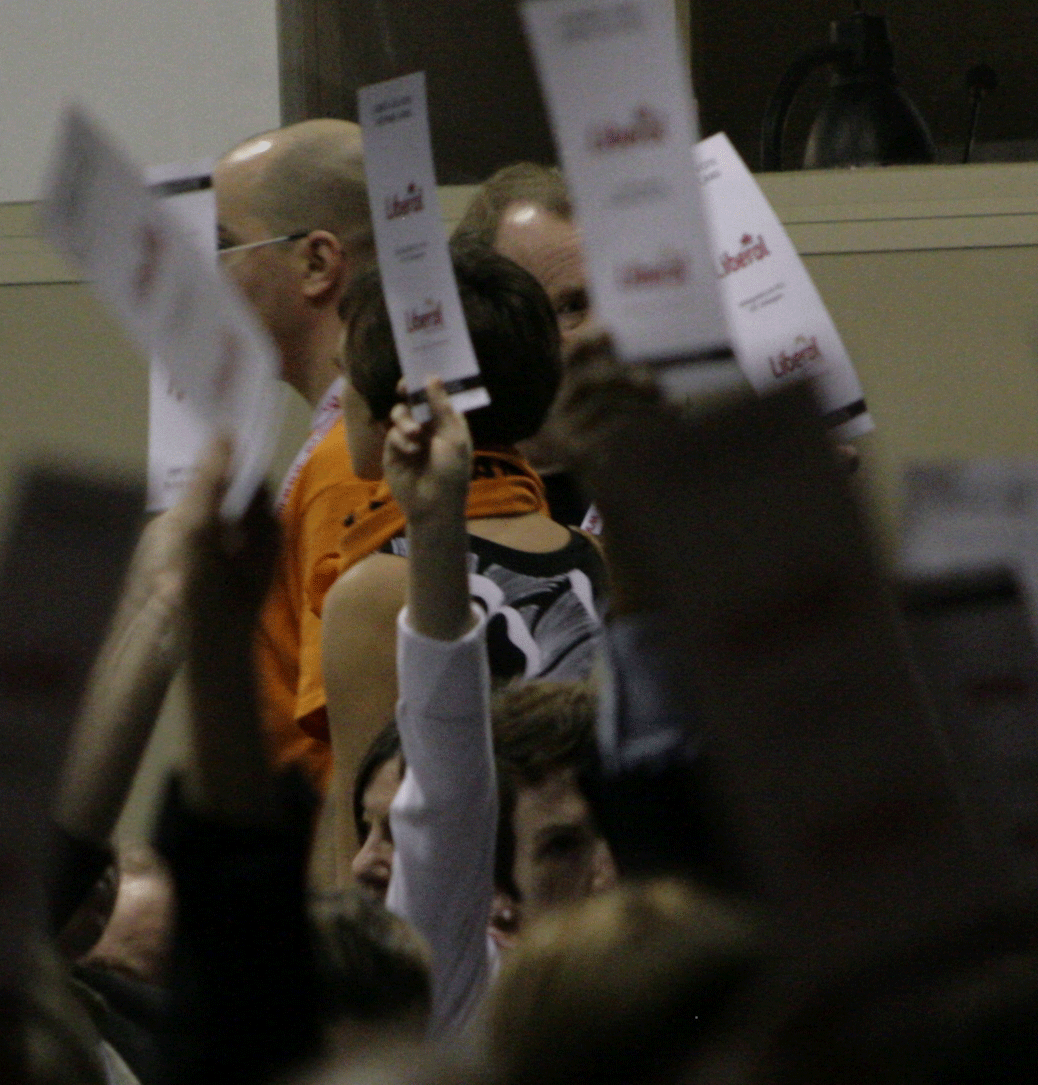
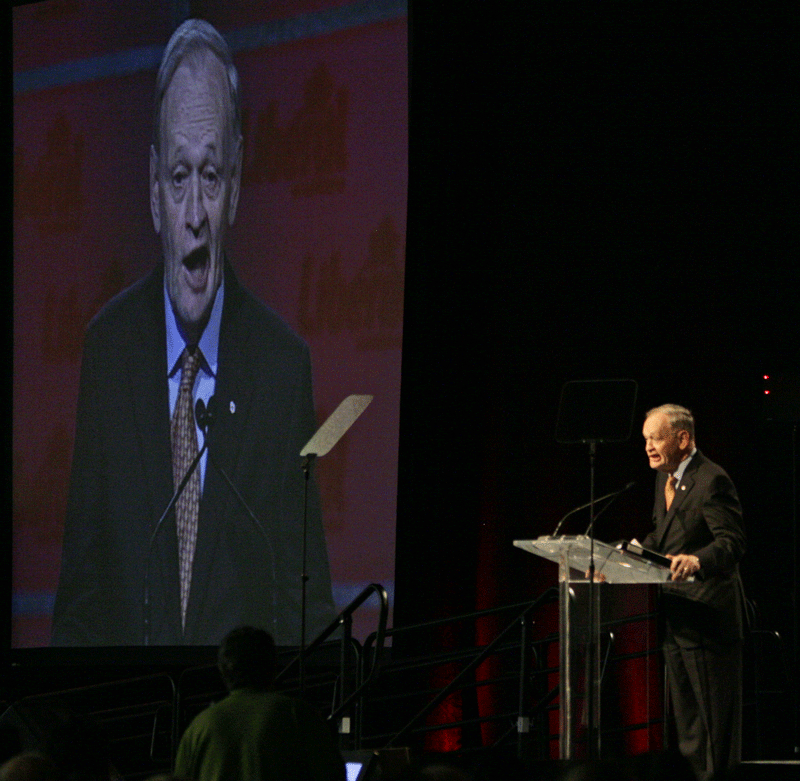
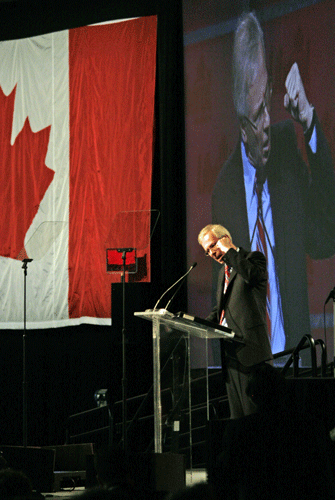
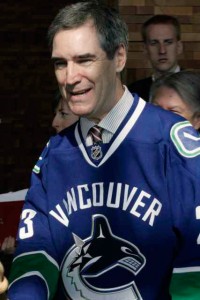
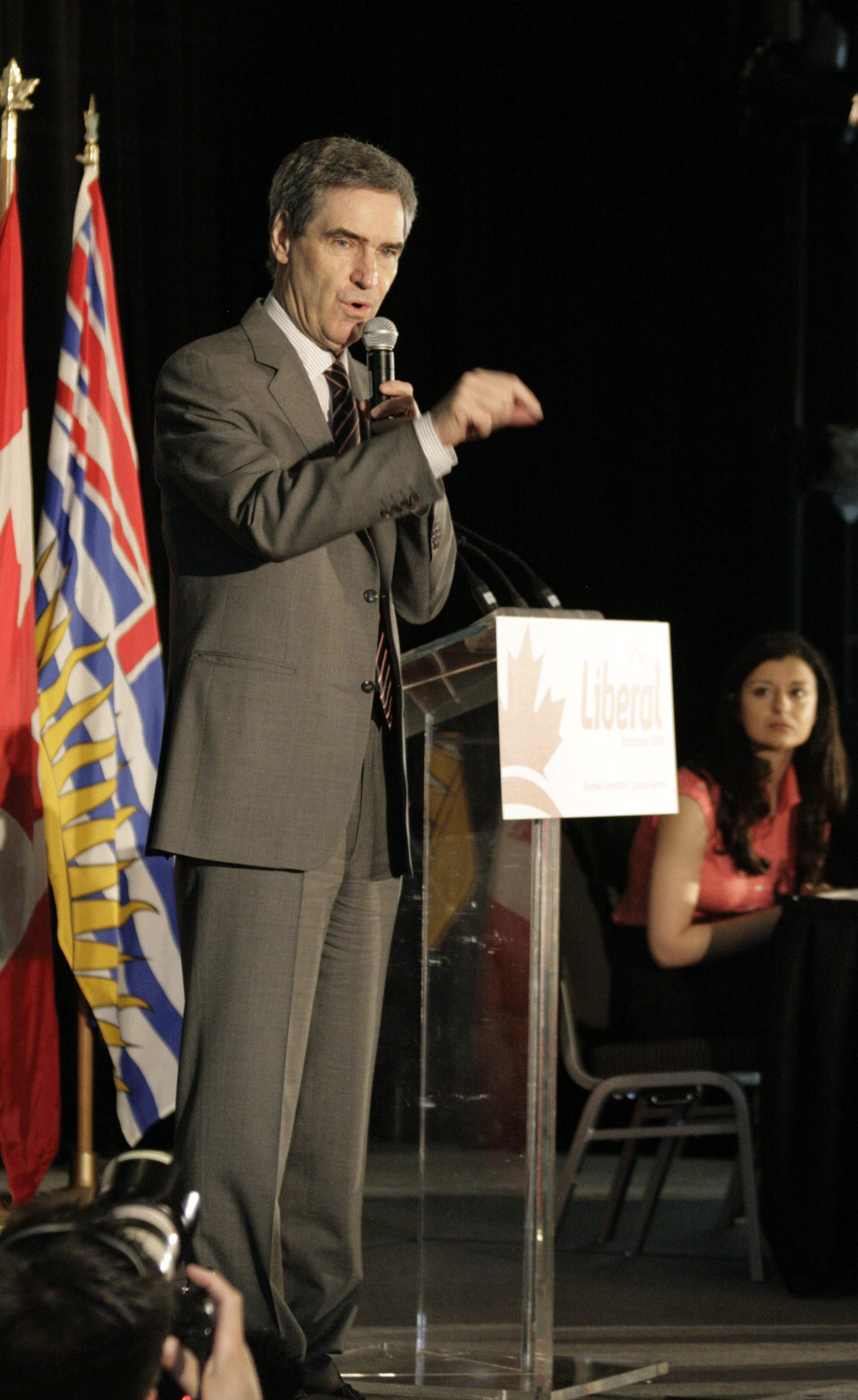
 RSS Feed
RSS Feed